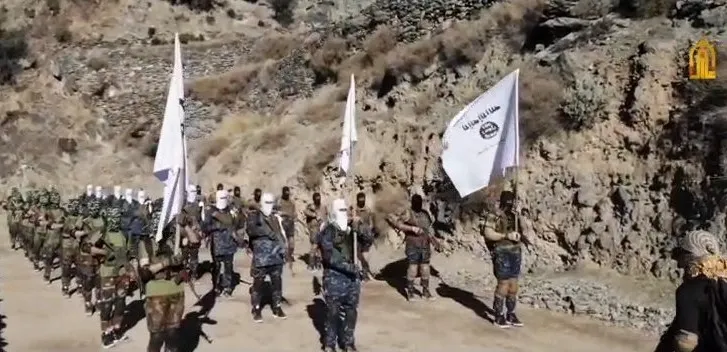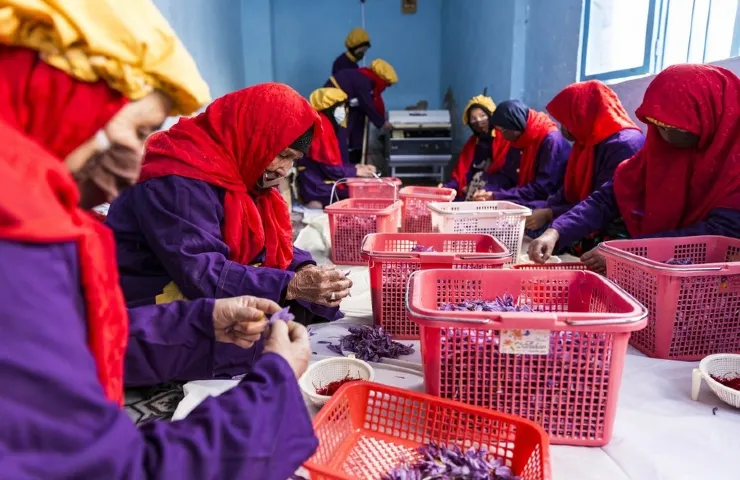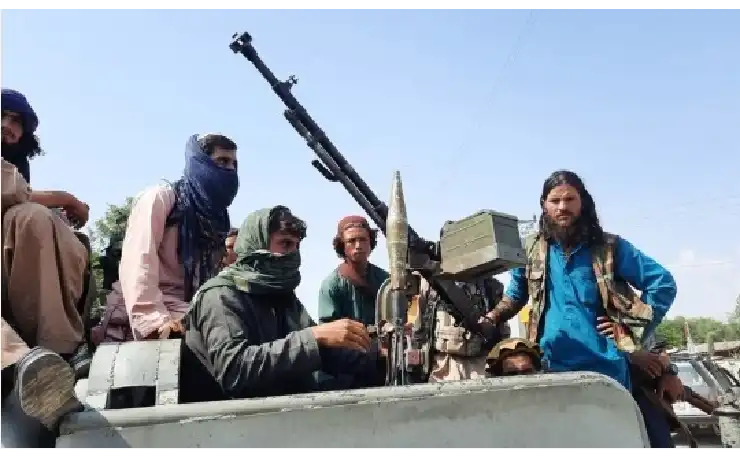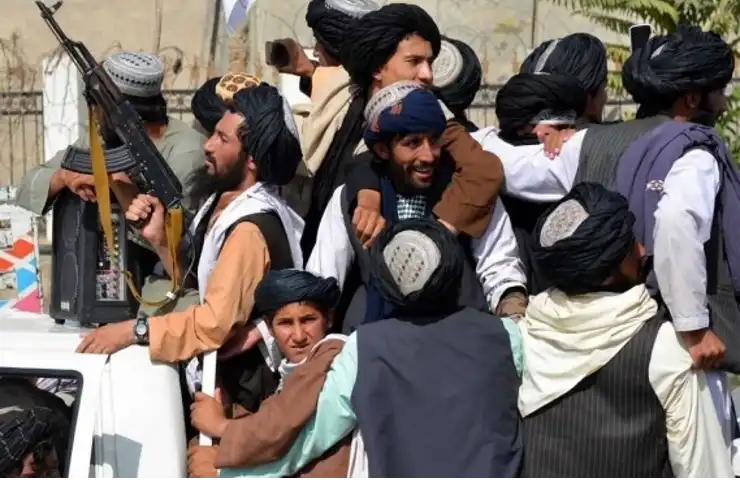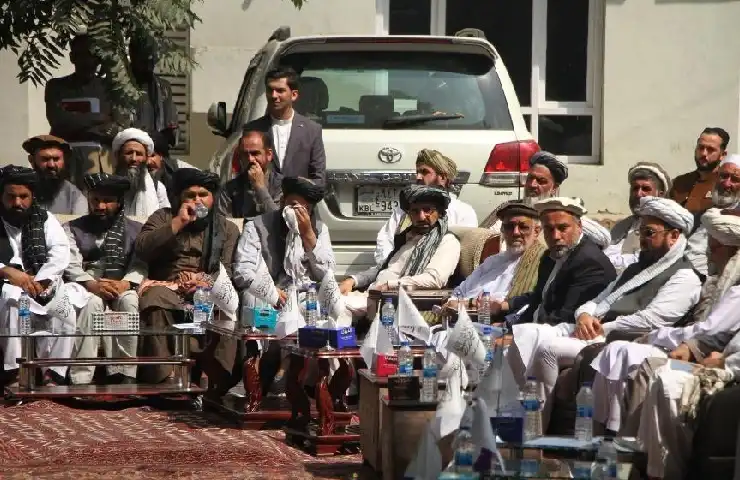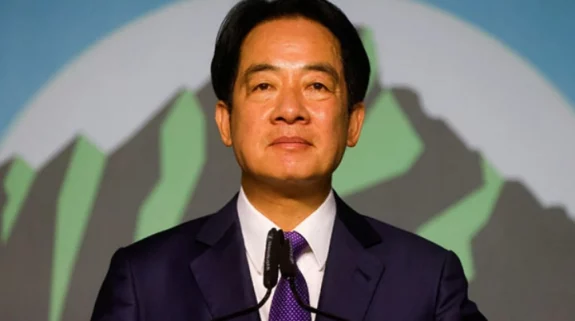![]() The Pakistani Taliban, also called Tehreek-i-Taliban Pakistan (TTP), that operates along the Af–Pak border, has extended its support to Baloch and Sindh nationalists. Talking about social and development issues plaguing the troubled Balochistan province, the TTP even said that the Pakistani media is not reporting the truth about the Baloch.
The Pakistani Taliban, also called Tehreek-i-Taliban Pakistan (TTP), that operates along the Af–Pak border, has extended its support to Baloch and Sindh nationalists. Talking about social and development issues plaguing the troubled Balochistan province, the TTP even said that the Pakistani media is not reporting the truth about the Baloch.
Tehreek-e-Taliban Pakistan (TTP) condemns Pakistan govt for water shortage in Cholistan and #Balochistan regions, and forced disappearances of #Baloch students. TTP appeals to Baloch people all over the world to join TTP in jihad against Pakistan's oppressive army. pic.twitter.com/bxtghq56BB
— SAMRIBackup (@SamriBackup) May 18, 2022
Ironically, the TTP is currently holding peace talks with the Pakistani government. The talks have been brokered by a common friend–the Afghan Taliban that now runs Afghanistan. The announcement about the ceasefire and talks was made by Taliban spokesman Zabihullah Mujahid on Twitter.
The TTP, which is closely aligned with similar other militant Islamic groups in the Af-Pak region has carried out daring attacks against the Pakistani government and military.
In its surprising statement, the militant group highlighted numerous problems being faced by the Baloch people. These include the highly emotional issue of enforced disappearances, acute water shortage and deaths due to cholera.
TTP has even claimed that the Pakistani elite is deliberately ignoring Balochistan for the last seven decades.
Leveling allegations against Pakistani security forces, TTP alleged that the supposed “protectors” of the people either kill innocent citizens in fake encounters or indulge in "forcibly disappearances"–euphemism for State-sponsored kidnappings.
Though the TTP and the Baloch rebels diverge in their overall goals, many of their activities have been common. The TTP nurtures a more Islamic vision for Pakistan than what the country currently is along with the imposition of the Sharia law, while the Baloch rebels want independence from Pakistan and more control over their mineral wealth. The Baloch fight against the Pakistani government and military excesses on an ethno-nationalist platform which has been seen to be largely secular.
Convergence for both groups centres around the $62 billion China-Pakistan Economic Corridor (CPEC) project. Deadly attacks carried out by the TTP as well as the Baloch nationalists have impeded the progress of the CPEC as well as resulted in the killings of many Chinese nationals.
TTP's deadliest attack against the Chinese occured on 14 July 2021 in which nine Chinese nationals of the Dasu hydropower project were killed. Similarly, a female suicide bomber of the Balochistan Liberation Army's Majeed Brigade killed three Chinese teachers of the Confucius Institute in Karachi University in April.
After showering sympathy on the Baloch, the TTP has also extended its support to the Sindhi nationalist movement.
کراچی سےکابل تک پاکستانی فوج اورISIکےمظالم پھیلے ہوئےہیں۔
بلوچستان کے بعد اب ہم سندھو دیش کی تحریک آزادی کوسپورٹ اور اپنے مہاجر اور سندھی بھائیوں کو مکمل امن و محبت کا پیغام دیتے ہیں۔
جو بھی ریاست پاکستان کی فوج کےمظالم سے آزادی چاہتاہےوہ ہمارا دوست ہے۔
تحریک طالبان پاکستان#TTP pic.twitter.com/9LGMzE7E6P— Kahkashan Haider (@KahkashanHaide3) May 17, 2022
In a video message, the TTP said: "The atrocities of the Pakistani Army and the ISI are spreading from Karachi to Kabul. After Balochistan, we now support the Sindh independence movement and send a message of complete peace and love to our Sindhi brothers. Whoever wants freedom from the tyranny of the State of Pakistan is our friend".
Now, the TTP wants the Baloch to join them against Pakistani military and intelligence agencies. The statement said: "TTP appeals to Baloch people all over the world to join TTP in jihad against Pakistan's oppressive army".
The Baloch organisations including the BLA, the Baloch Republican Army (BRA), the Baloch Liberation Front (BLF) and many others may or may not join the TTP, largely because their end aims are completely at odds, but their activities against the Pakistani State increased almost at the same time as the US vacated Afghanistan and the Taliban took over the country. Though unconnected, the attacks by nationalist Baloch, Sindhis and the Islamist TTP increased once the Taliban returned to office in Kabul.
Tehreek-e-Taliban Pakistan (TTP) condemns Pakistan govt for water shortage in Cholistan and #Balochistan regions, and forced disappearances of #Baloch students. TTP appeals to Baloch people all over the world to join TTP in jihad against Pakistan's oppressive army. pic.twitter.com/bxtghq56BB
— SAMRIBackup (@SamriBackup) May 18, 2022






